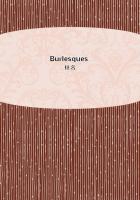I already knew in outline the remarkable history of this old man; but I had always felt a keen desire to fill in the details, and above all to receive them from himself. For me, the strange destiny of the man was a philosophical problem to be solved. I therefore noticed his features, his manners, and his home with peculiar interest.
Bernard Mauprat must be fully eighty-four, though his robust health, his upright figure, his firm step, and the absence of any infirmity might indicate some fifteen or twenty years less. His face would have appeared to me extremely handsome, had not a certain harshness of expression brought before my eyes, in spite of myself, the shades of his fathers. I very much fear that, externally at all events, he must resemble them. This he alone could have told us; for neither my friend nor myself had known any other Mauprat. Naturally, however, we were very careful not to inquire.
It struck us that his servants waited on him with a promptitude and punctuality quite marvellous in Berrichon domestics. Nevertheless, at the least semblance of delay he raised his voice, knitted his eyebrows (which still showed very black under his white hair), and muttered a few expressions of impatience which lent wings even to the slowest. At first I was somewhat shocked at this habit; it appeared to savour rather too strongly of the Mauprats. But the kindly and almost paternal manner in which he spoke to them a moment later, and their zeal, which seemed so distinct from fear, soon reconciled me to him.
Towards us, moreover, he showed an exquisite politeness, and expressed himself in the choicest terms. Unfortunately, at the end of dinner, a door which had been left open and through which a cold air found its way to his venerable skull, drew from him such a frightful oath that my friend and I exchanged a look of surprise. He noticed it.
"I beg your pardon, gentlemen," he said. "I am afraid you find me an odd mixture. Ah, you see but a short distance. I am an old branch, happily torn from a vile trunk and transplanted into good soil, but still knotted and rough like the wild holly of the original stock. Ihave, believe me, had no little trouble in reaching the state of comparative gentleness and calm in which you behold me. Alas! if Idared, I should reproach Providence with a great injustice--that of having allotted me a life as short as other men's. When one has to struggle for forty or fifty years to transform one's self from a wolf into a man, one ought to live a hundred years longer to enjoy one's victory. Yet what good would that do me?" he added in a tone of sadness. "The kind fairy who transformed me is here no more to take pleasure in her work. Bah! it is quite time to have done with it all."Then he turned towards me, and, looking at me with big dark eyes, still strangely animated, said:
"Come, my dear young man; I know what brings you to see me; you are curious to hear my history. Draw nearer the fire, then. Mauprat though I am, I will not make you do duty for a log. In listening you are giving me the greatest pleasure you could give. Your friend will tell you, however, that I do not willingly talk of myself. I am generally afraid of having to deal with blockheads, but you I have already heard of; I know your character and your profession; you are an observer and narrator--in other words, pardon me, inquisitive and a chatterbox."He began to laugh, and I made an effort to laugh too, though with a rising suspicion that he was ****** game of us. Nor could I help thinking of the nasty tricks that his grandfather took a delight in playing on the imprudent busybodies who called upon him. But he put his arm through mine in a friendly way, and ****** me sit down in front of a good fire, near a table covered with cups--"Don't be annoyed," he said. "At my age I cannot get rid of hereditary sarca**; but there is nothing spiteful in mine. To speak seriously, Iam delighted to see you and to confide in you the story of my life. Aman as unfortunate as I have been deserves to find a faithful biographer to clear his memory from all stain. Listen, then, and take some coffee."I offered him a cup in silence. He refused it with a wave of the arm and a smile which seemed to say, "That is rather for your effeminate generation."Then he began his narrative in these words:
I
You live not very far from Roche-Mauprat, and must have often passed by the ruins. Thus there is no need for me to describe them. All I can tell you is that the place has never been so attractive as it is now.
On the day that I had the roof taken off, the sun for the first time brightened the damp walls within which my childhood was passed; and the lizards to which I have left them are much better housed there than I once was. They can at least behold the light of day and warm their cold limbs in the rays of the sun at noon.
There used to be an elder and a younger branch of the Mauprats. Ibelong to the elder. My grandfather was that old Tristan de Mauprat who ran through his fortune, dishonoured his name, and was such a blackguard that his memory is already surrounded by a halo of the marvelous. The peasants still believe that his ghost appears, either in the body of a wizard who shows malefactors the way to the dwellings of Varenne, or in that of an old white hare which reveals itself to people meditating some evil deed. When I came into the world the only living member of the younger branch was Monsieur Hubert de Mauprat, known as the chevalier, because he belonged to the Order of the Knights of Malta; a man just as good as his cousin was bad. Being the youngest son of his family, he had taken the vow of celibacy; but, when he found himself the sole survivor of several brothers and sisters, he obtained release from his vow, and took a wife the year before I was born. Rumour says that before changing his existence in this way he made strenuous efforts to find some descendant of the elder branch worthy to restore the tarnished family name, and preserve the fortune which had accumulated in the hands of the younger branch.















